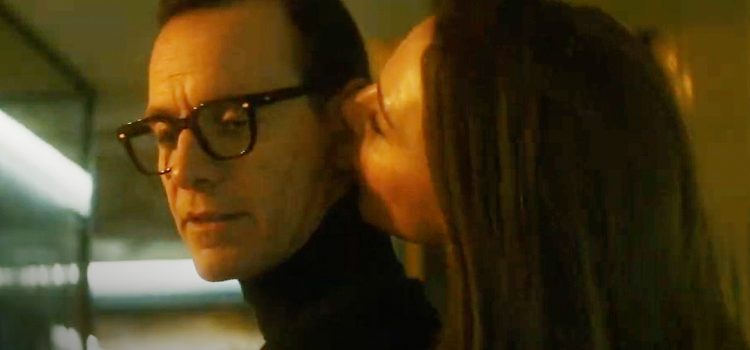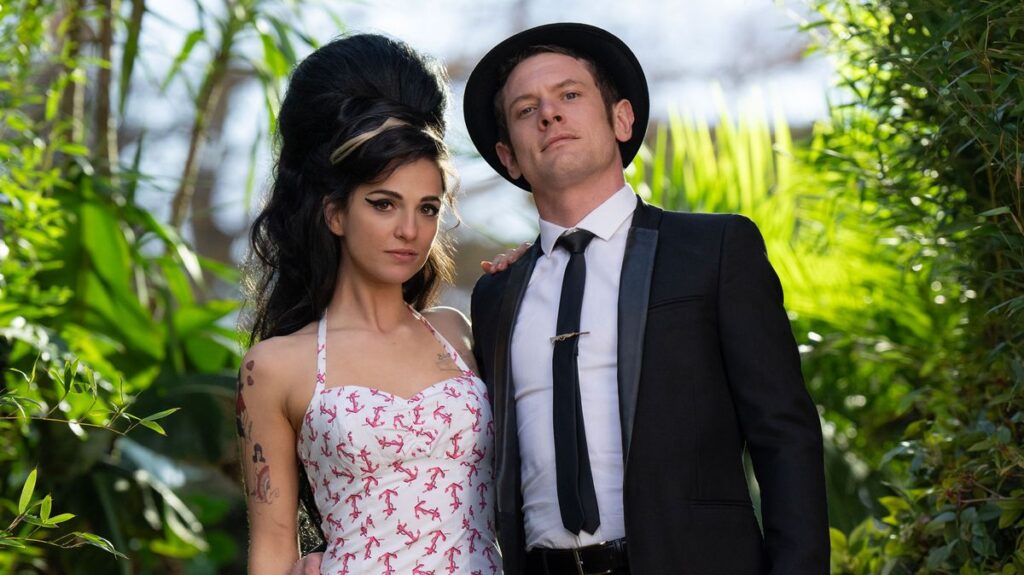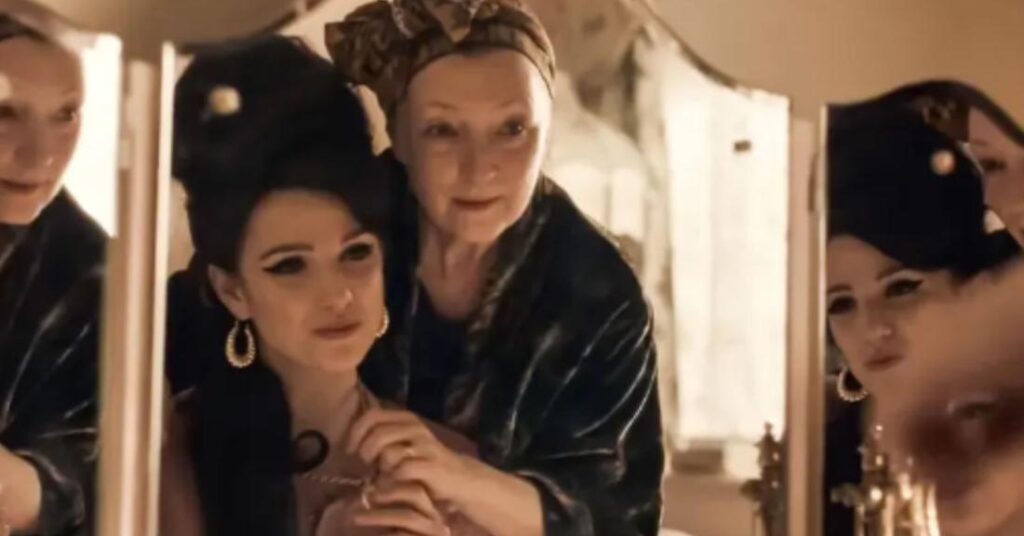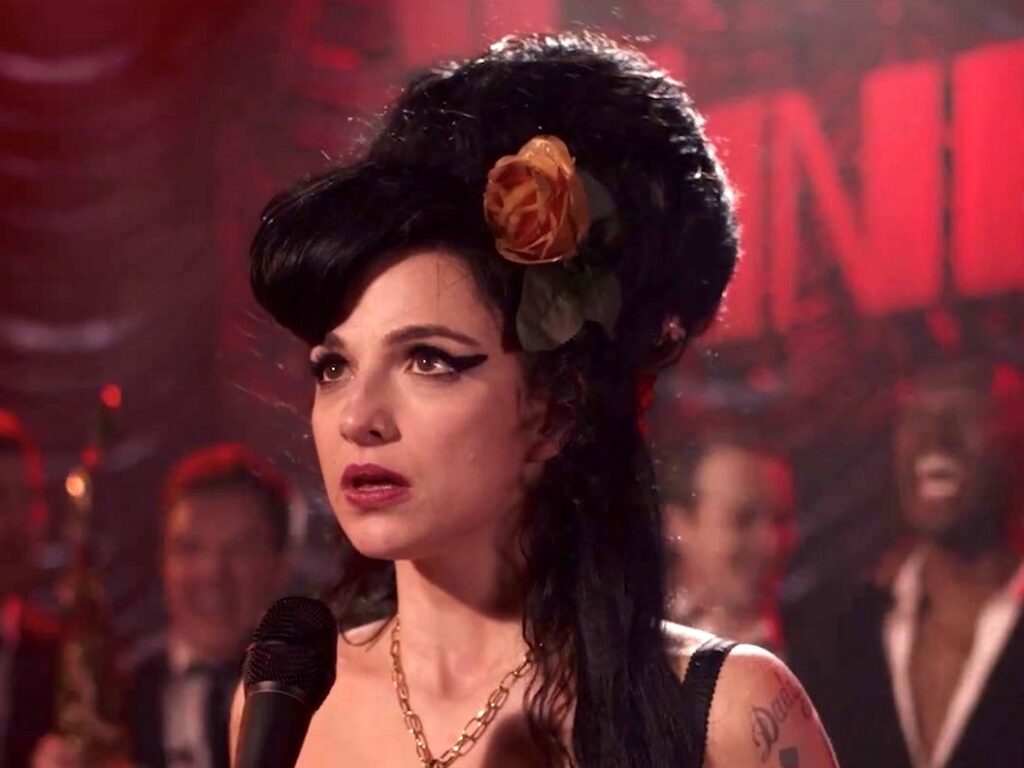By Alex McPherson
Efficient, well-acted, and sleek as hell, director Steven Soderbergh’s “Black Bag” is pure escapist fun, weaving a tale of messy interpersonal drama into a spy yarn whose dense plotting yields ample rewards.
British intelligence officer George Woodhouse (Michael Fassbender) is a cold, calculating, and loyal specialist who can’t stand liars but takes a certain amount of pleasure in rooting them out. He’s told by his superior, Philip Meacham (Gustaf Skarsgard), that a top-secret software program called Severus has been leaked, and he’s got to “find the rat” in a week’s time or millions of people will die.
Seems like an easy enough task for George who, when he was 37 years old, investigated his own father (once working at the same institution himself) for having an affair.
The only catch is that Meacham reveals that George’s beautiful and enigmatic wife who also works at the agency, Kathryn St. Jean (Cate Blanchett), is one of the five suspects. This troubles George; he and Kathryn share a deep, intimate bond, based on unwavering trust and loyalty to each other. Why would she betray him and his country?
George invites the other four individuals — who also happen to be couples — over for dinner and drinks (which include truth serum) hoping to shake loose who leaked Severus. There’s the satellite imagery specialist Clarissa Dubose (Marisa Abela) and her trouble-making boyfriend and managing agent Freddie Smalls (Tom Burke); and wry agency shrink Dr. Zoe Vaughan (Naomie Harris) and her vain partner, the recently-promoted Col. James Stokes (Regé-Jean Page).
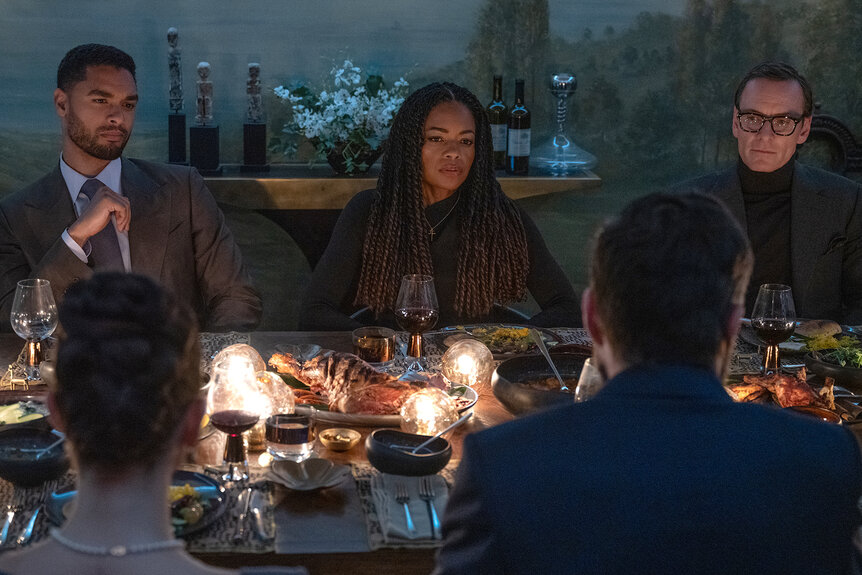
This group of horny, mentally troubled spies becomes quickly undone thanks to George’s truth serum: a betrayal is revealed, and a hand is promptly stabbed with a knife. But George’s mission isn’t accomplished, and as the plot thickens — especially when the agency’s haughty and slick-haired boss Arthur Stieglitz (Pierce Brosnan, chewing copious scenery) comes onto the scene — a story of double-crosses, insecurities, and life-or-death stakes reveals itself. Most importantly, though, can George and Kathryn’s marriage survive in a job where the code-word “black bag” conceals all secrets?
Indeed, “Black Bag” uses familiar trappings of the spy genre to tell a story about human connections, both frayed and resilient, delivered with smooth style and an ensemble flaunting their star power in entertainingly self-aware fashion. Soderbergh’s film (his second this year after the thrillingly experimental “Presence”) is a no-frills endeavor, moving at a fast clip as the twists stack up and remain so damn fun to watch.
Fassbender shines particularly brightly within the star-studded cast, adding another notch to his “malfunctioning robot” characters, which was most recently personified in David Fincher’s “The Killer.” George is charismatic yet socially stunted, moving with a smooth, often darkly funny determination toward conclusions that might terrify him. His stone-cold façade erodes as he evaluates how much Kathryn ultimately means to him, and the lengths he’s willing to go to protect her.
Blanchett exudes effortless coolness as Kathryn, remaining mysterious yet right at home with George. David Koepp’s script portrays their connection with just enough mystery and ambiguity to keep us on our toes as to Kathryn’s ultimate intentions, testing whether we believe in their enduring bond as surrounding characters’ personal and professional lives fall apart, sometimes spectacularly.

The entire ensemble is excellent, with Abela and Brosnan the clear standouts. Abela makes a meal of Koepp’s crackly, quip-filled script; her Clarissa, unsure how to navigate romance within the spy world along with her own insecurities, is feisty and impulsive. She remains compelled to act for what she considers the greater good. Brosnan, in a seemingly anti-James-Bond role, makes a strong impression despite limited screen time, oscillating between confident and increasingly uncomfortable as the plot spirals further out of control.
The ensemble’s talent carries “Black Bag” a long way, but, even with a lesser cast, there’s still much to appreciate from a stylistic perspective. David Holmes’s electronic score pulses in sync with each new revelation; percussive beats amid jazzy themes symbolically tie into the characters’ eroding disguises.
Scenes are lit with a warm, hazy glow, and Soderbergh — who also handled cinematography and editing — opts for finely-tuned precision, not wasting any time as the labyrinthine plot progresses. The aforementioned dinner scene and a polygraph test later in the film are particular standouts, with Koepp’s script and Soderbergh’s editing working in perfect, tension-filled harmony.
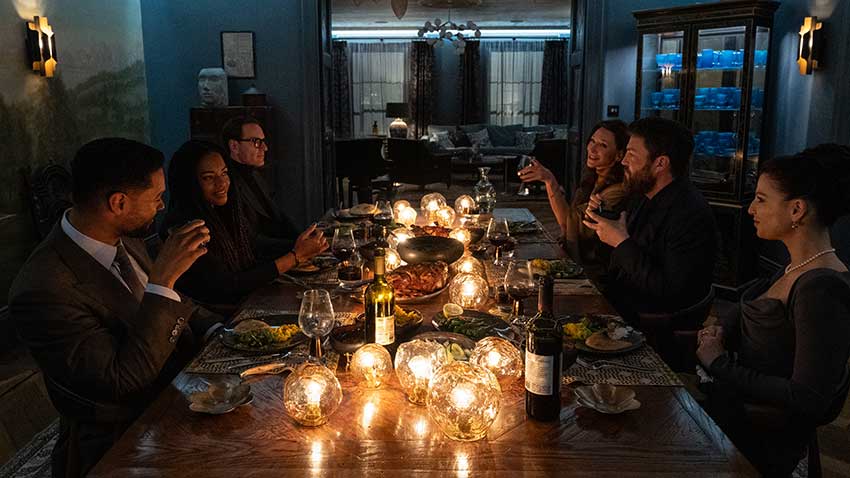
It’s refreshing to see a film like “Black Bag” that trusts viewers to follow along with the characters’ lingo and technology without talking down. The (disquietingly current) geopolitics take a backseat to the characters’ interpersonal happenings.
In its own heightened, somewhat soapy way, “Black Bag” has much to say about romantic relationships and the trust necessary to keep them afloat, even in the treacherous terrain of spy craft. Admittedly, “poignancy” is somewhat sidelined in service of keeping the film’s infectiously enjoyable momentum.
Clocking in at 93 minutes, “Black Bag” flies by and remains prime for future rewatches — a confident, intelligent, sexy spy story that signals one of the year’s first great films.
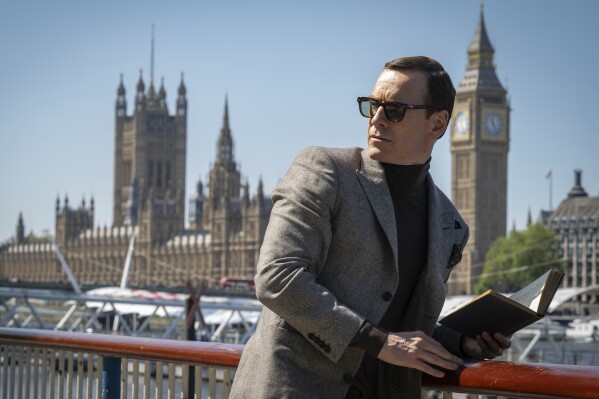
“Black Bag” is a spy thriller directed by Steven Soderbergh and starring Michael Fassbender, Cate Blanchett, Rege-Jean Page, Pierce Brosnan, Naomie Harris, Tom Burke, Marisa Abela and Gustaf Skarsgard. It is rated R for language including some sexual references, and some violence, and the runtime is 1 hour, 33 minutes. It opened in theaters March 14. Alex’s Grade: A
Alex McPherson is an unabashed pop culture nerd and a member of the St. Louis Film Critics Association.

